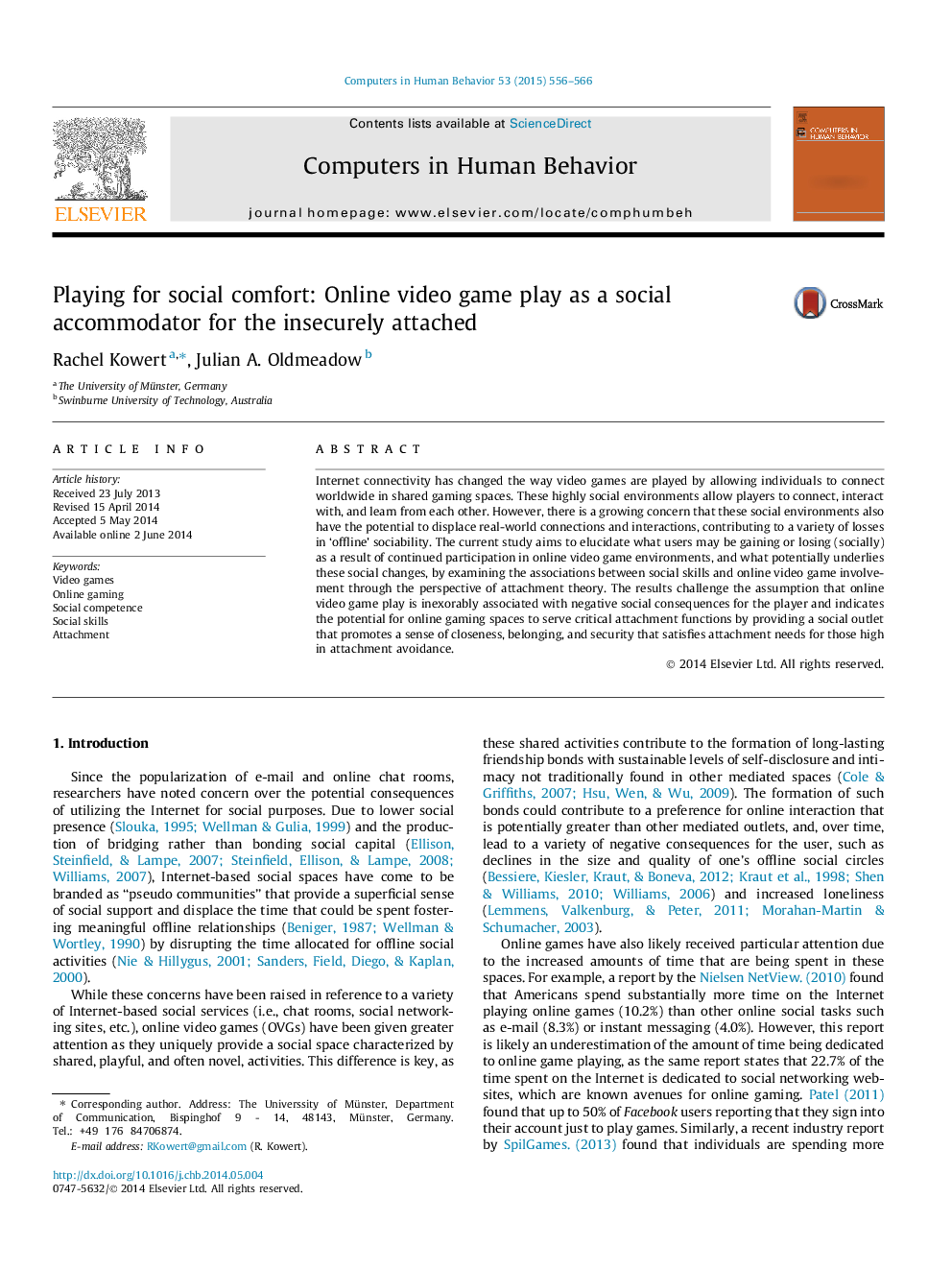| Article ID | Journal | Published Year | Pages | File Type |
|---|---|---|---|---|
| 350132 | Computers in Human Behavior | 2015 | 11 Pages |
•Online video game (OVG) play is believed to lead to losses in offline sociability.•The current study assessed the impact of OVG involvement on social skill outcomes.•To assess causality, the assessment was done through the lens of attachment theory.•Attachment does not mediate the relationships between OVG play and social outcomes.•OVG spaces seem to hold the potential to satisfy needs for the avoidantly attached.
Internet connectivity has changed the way video games are played by allowing individuals to connect worldwide in shared gaming spaces. These highly social environments allow players to connect, interact with, and learn from each other. However, there is a growing concern that these social environments also have the potential to displace real-world connections and interactions, contributing to a variety of losses in ‘offline’ sociability. The current study aims to elucidate what users may be gaining or losing (socially) as a result of continued participation in online video game environments, and what potentially underlies these social changes, by examining the associations between social skills and online video game involvement through the perspective of attachment theory. The results challenge the assumption that online video game play is inexorably associated with negative social consequences for the player and indicates the potential for online gaming spaces to serve critical attachment functions by providing a social outlet that promotes a sense of closeness, belonging, and security that satisfies attachment needs for those high in attachment avoidance.
